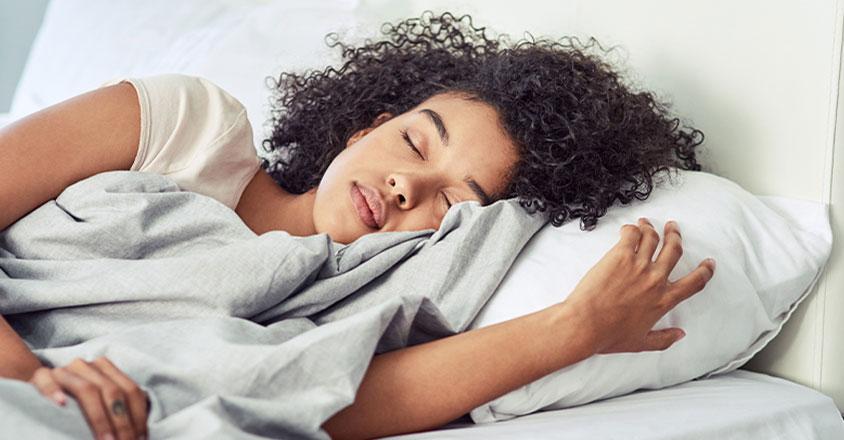

Yes, you can get a better night’s sleep
Did you know one out of three adults in the U.S. doesn’t get enough sleep? When it comes to kids and teens, the problem is even worse: A recent study found that more than 70% of high school students and nearly 58% of middle school students don’t sleep enough on school nights.
Why does this matter? It’s not just because you’ll feel tired the next day.
“A lack of sleep is linked with many chronic conditions like heart disease, diabetes, obesity and mental health issues,” explains Thomas E. Rojewski, M.D., a board-certified sleep medicine physician who heads the Genesis Sleep Disorders Center at Genesis HealthCare System. “There are also related problems such as auto accidents caused by a drowsy driver and errors made on the job, which can cause serious injuries, disability or death.”
How much is enough sleep? Here’s what experts say:
Ages 6-12: Should regularly sleep nine 9 to 12 hours every 24 hours
Ages 13-18: Should sleep eight to 10 hours every 24 hours
Adults: seven or more hours a night
What’s happening?
For some, a lack of sleep might be caused by something they can control – such as keeping their smartphone out of the bedroom at night to avoid temptation.
But for other people, lack of sleep can be caused by a medical issue such as obstructive sleep apnea, a condition that causes the windpipe to collapse or restless legs syndrome, which is an uncontrollable urge to move the legs or limbs. Narcolepsy, a neurological sleep disorder that affects the sleep-wake cycle, is another medical issue and reason people seek help to get a better night’s sleep.
Diagnosing a sleep disorder
A patient who has sleep issues or believes he or she may have a sleep disorder like sleep apnea should first consult a sleep expert. During this time, the patient and sleep expert will discuss the patient’s health history and suspected sleep problems.
“A sleep study is very similar to getting a stress test for chest pain,” explains Dr. Rojewski. “For example, we monitor 19 body functions during a night-time study. This data helps us determine the best treatment for each patient.”
Treatment solutions range from the latest in continuous positive airway pressure (CPAP) and bilevel positive airway pressure (BiPAP) breathing technology to lifestyle changes, medications and for some, surgery.
“Many people have heard of CPAP machines for sleep apnea,” explains Dr. Rojewski. “But what they may not know is how they’ve advanced in recent years. They are smaller and quieter than in the past, and now they are Wi-Fi enabled, so sleep centers can receive patient data every day through a secure server. That allows physicians to monitor patients and adjust the CPAP machine if needed to provide a better night’s sleep.”
Tips for a better night’s sleep
For people who aren’t suffering from serious sleep issues but would like to get better sleep, here are some suggestions:
Remove electronic devices from your bedroom so you aren’t tempted to use them when you should be striving for better sleep.
Keep your bedroom dark and at a comfortable temperature.
Keep a consistent sleep schedule.
Only use your bed for sleep.
Avoid caffeine in the afternoon or evening.



